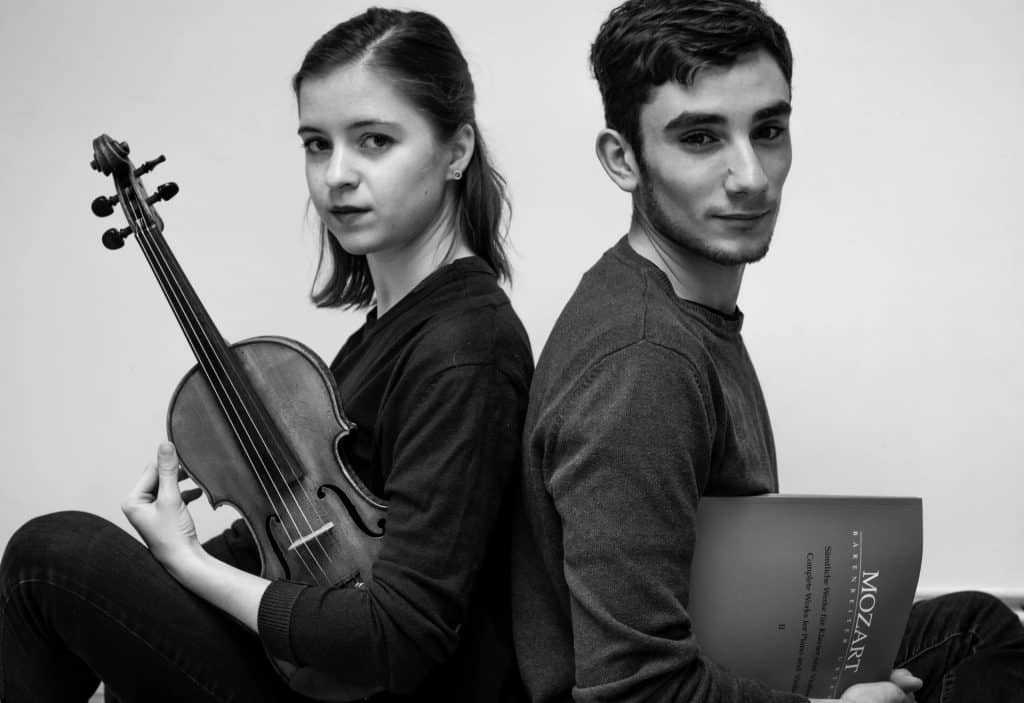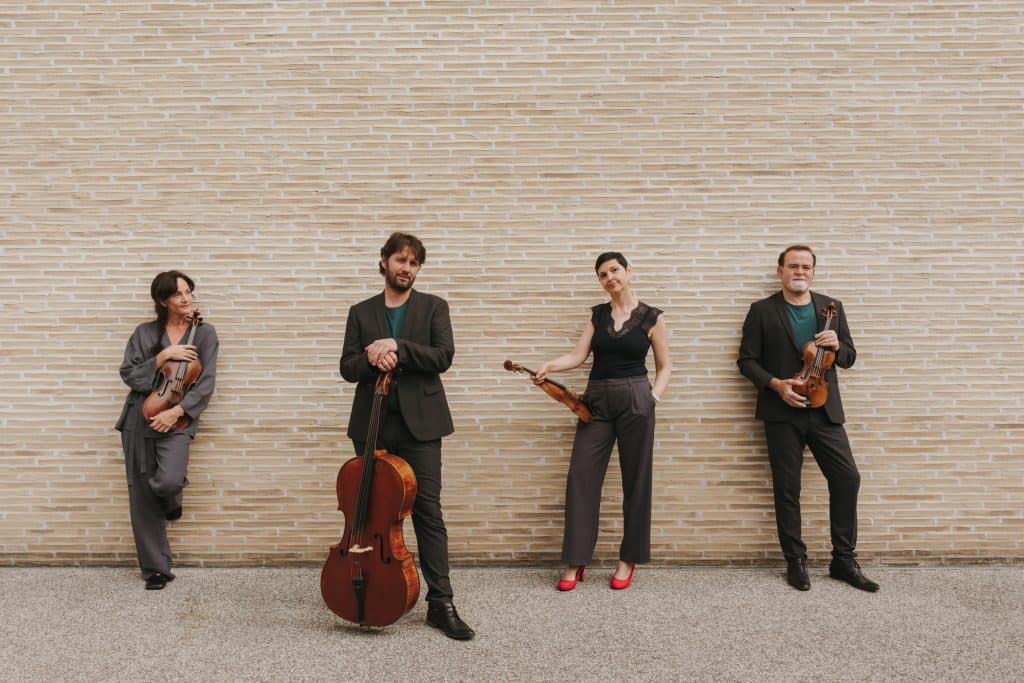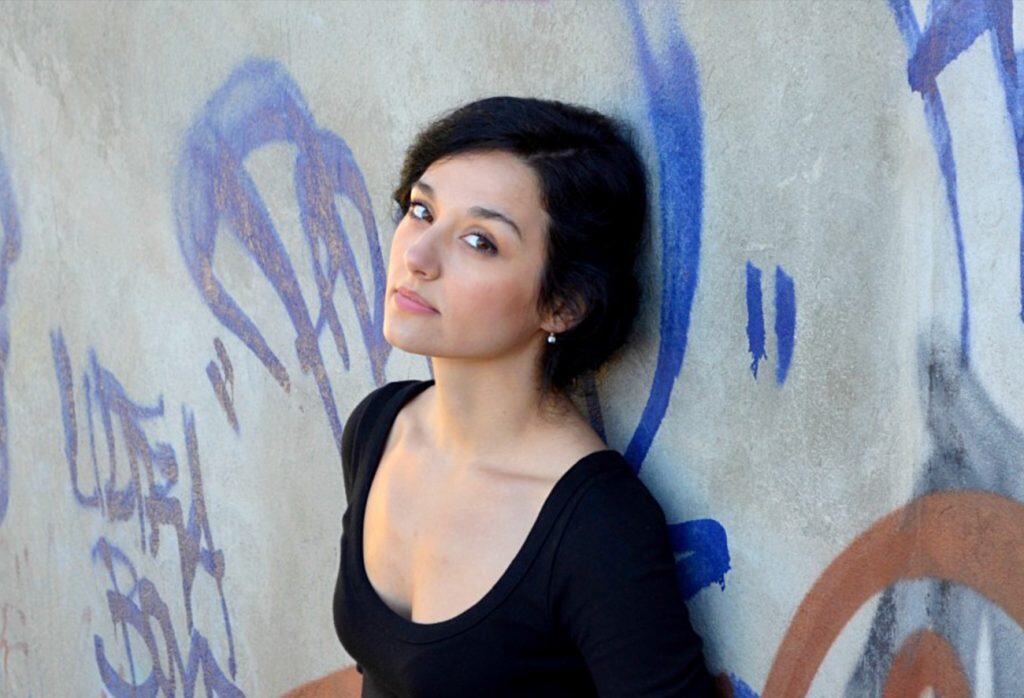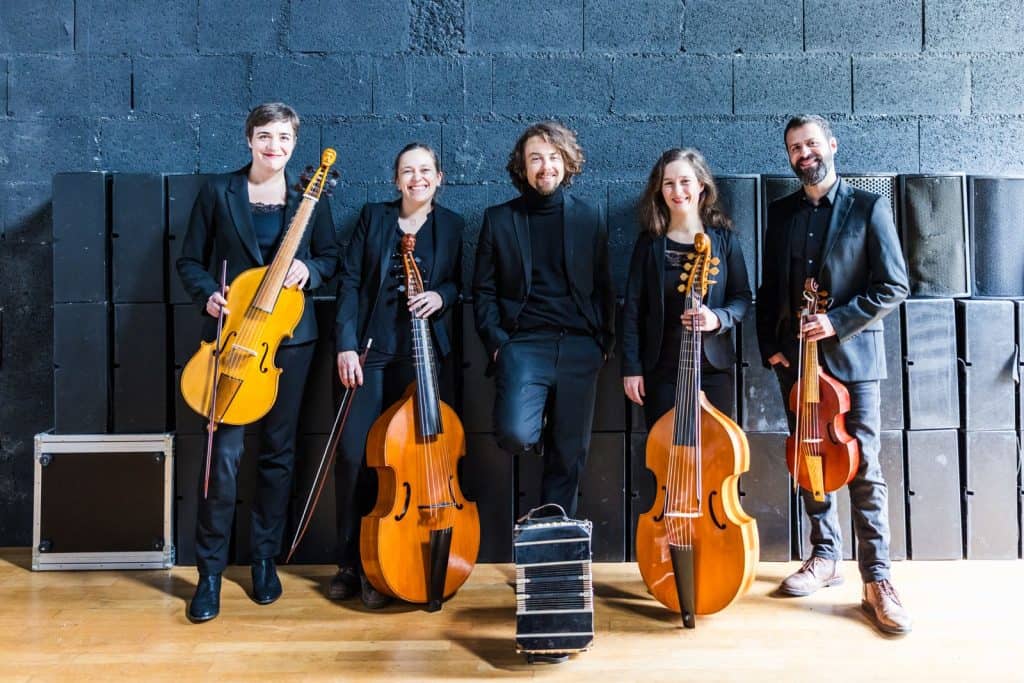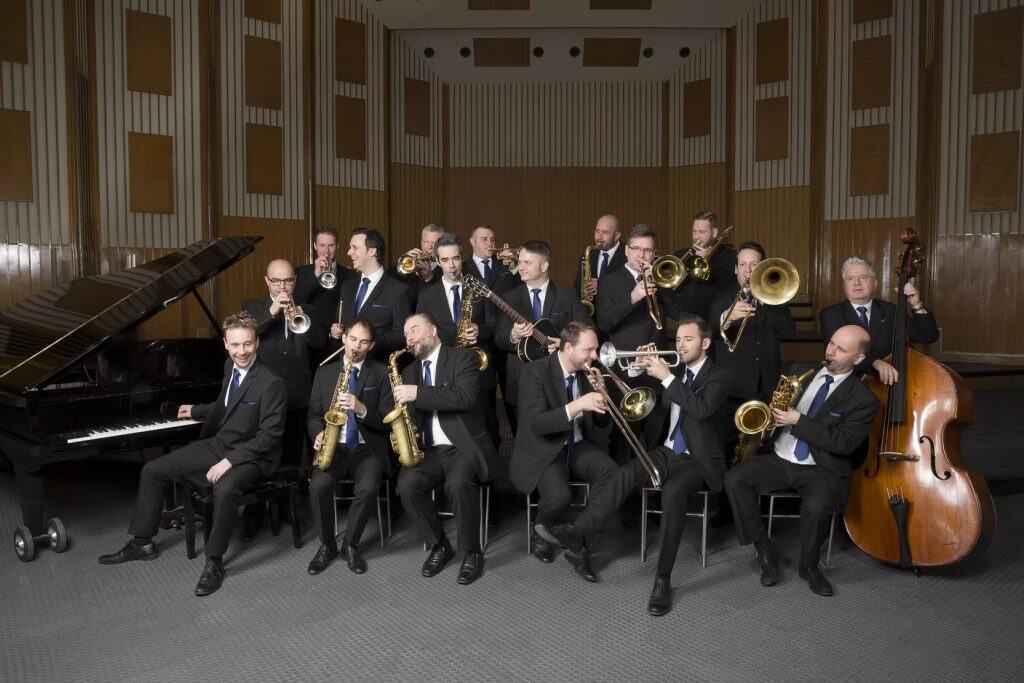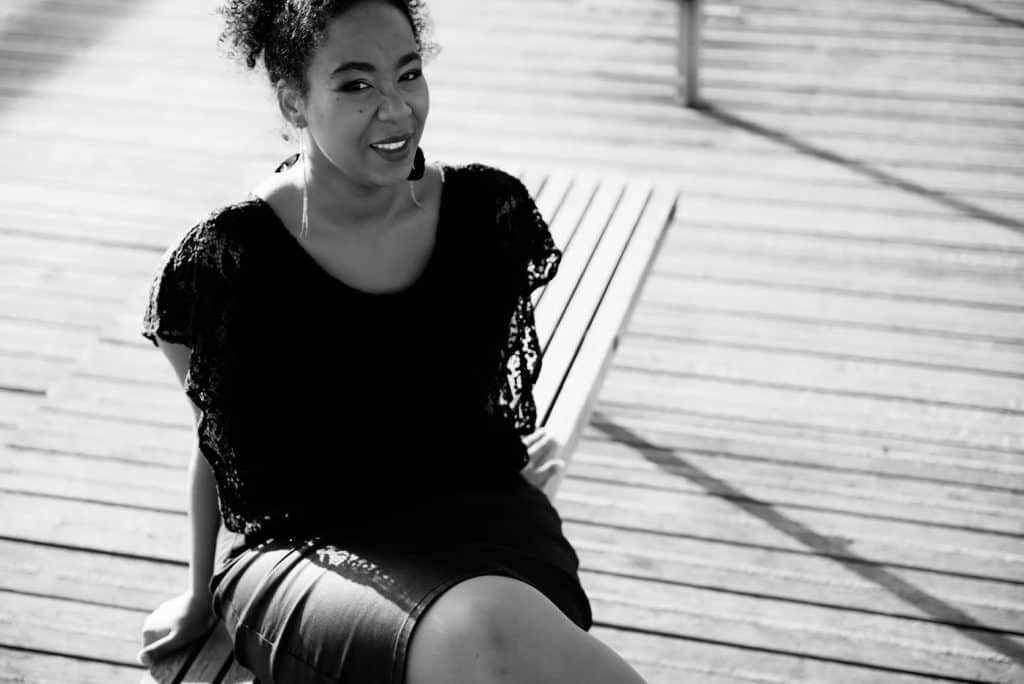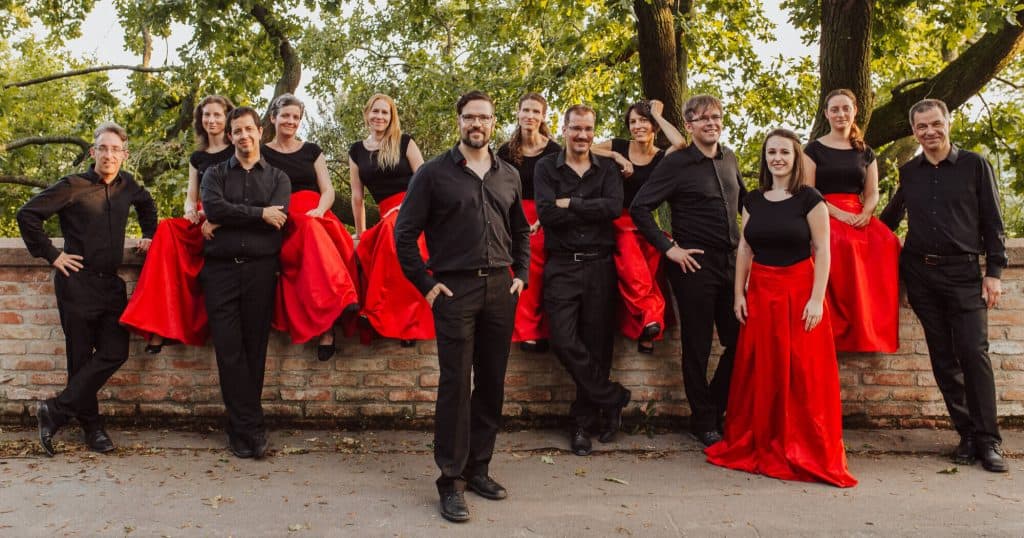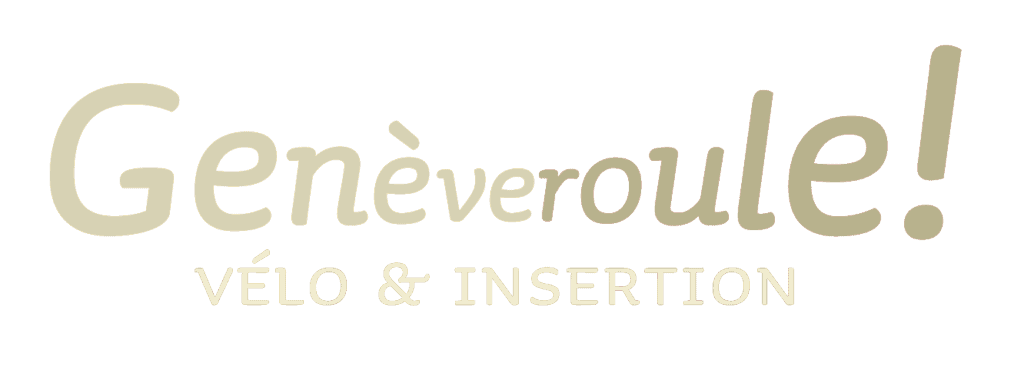More information on the Cyclo-Musical Day:
June 26, 2026
Friday
Discussion day
Studio Kodály 16:00
Musical Encounter
Budapest Jazz Orchestra (Hungary)
Topic :
Discussions on Gershwin: The Musical Relationship Between Jazz and Opera
Studio Kodály 17:00
Musical Encounter
L’Ensemble Achéron (France)
Topic :
Regard sur un instrument historique, la Viole de gambe
June 27, 2026
Saturday
Cycling & Music Day


The Léman Bouquet Festival invites participants on a 23 km recreational bike ride with four stops, offering the chance to admire the scenic beauty of the region. At each stop—in the picturesque villages of Anières, Messery, Excenevex, and Yvoire—riders can enjoy concerts of jazz, early music, chamber music, and orchestral music.
In addition, gourmet refreshments will be offered at each stop.
More information on the Cyclo-Musical Day:
ANIÈRES CHAPEL 10:00
Chamber music
Duo Vedana (France)
Cyril van Ginneken - piano
Clara Mesplé - violin
Programme :
Ludwig van Beethoven – Violin Sonata No. 5 – Allegro
Fritz Kreisler – Liebesfreud & Liebesleid
Edward Elgar – Salut d’Amour (Love’s Greeting)
Claude Debussy – Beau Soir
Antonín Dvořák – Violin Sonatina, Op. 100 – Allegro
Béla Bartók – Romanian Dances
Astor Piazzolla – Grand Tango, for Violin and Piano
ANIÈRES CHAPEL 10:45
Chamber music
Duo Vedana (France)
Cyril van Ginneken - piano
Clara Mesplé - violin
Programme :
Ludwig van Beethoven – Violin Sonata No. 5 – Allegro
Fritz Kreisler – Liebesfreud & Liebesleid
Edward Elgar – Salut d’Amour (Love’s Greeting)
Claude Debussy – Beau Soir
Antonín Dvořák – Violin Sonatina, Op. 100 – Allegro
Béla Bartók – Romanian Dances
Astor Piazzolla – Grand Tango, for Violin and Piano
SAINT PIERRE CHURCH 14:00
String Quartet & Opera
Quatuor Terpsycordes (Switzerland)
Clara Meloni, soprano (Switzerland/Italy)
Programme :
Giuseppe Verdi – Quartet in E Minor
Giacomo Puccini – Crisantemi
Ottorino Respighi – Il tramonto, a short lyrical poem for mezzo-soprano and string quartet
Cast:
Clara Meloni, Soprano
Girolamo Bottiglieri – First Violin
Raya Raytcheva – Second Violin
Caroline Cohen-Adad – Viola
Florestan Darbellay – Cello
SAINT SYMPHORIEN CHURCH 17:00
BAROQUE MUSIC
L’Ensemble Achéron (France)
Programme :
The Swan Song – Fantasies by Henry Purcell for 4 Viols
Cast:
François Joubert-Caillet – Treble Viol & Direction
Julie Dessaint – Tenor Viol
Aude-Marie Piloz – Bass Viol
Sarah van Oudenhove – Bass Viol
FISHERMEN'S PORT 20:00
Jazz and Opera
Budapest Jazz Orchestra (Hungary)
Caroline Adoumbou, Mezzo-soprano (France)
Programme :
Rhapsody in Blue; Porgy and Bess: songs and instrumental pieces
Cast:
Caroline Adoumbou – Mezzo-soprano
Gábor Kollmann, Dániel Mester, Zoltán Zana, Tamás Meleg, György Varga – Saxophones
Ferenc Schreck, Nándor Kasza, Gábor Skerlecz, Viktor Dániel Nagy – Trombones
Péter Tulkán, Bence Táborszky, Dániel Hofecker, Áron Koós-Hutás – Trumpets
Attila Juhász – Piano
Miklós Birta – Guitar
Viktor Hárs – Double Bass
Dániel Serei – Drums
June 28, 2026
Sunday
Closing day
Saint Pancrace Church 11:00
Choral Splendors
Gemma Choir (Hungary)
Conductor: Márton Tóth
Programme :
Orlande de Lassus – Domine, Dominus noster (psalm 8.)
William Byrd – O salutaris hostia
Orlande de Lassus – Kyrie – Missa « Osculetur me »
Claude Debussy – Three Songs: “Dieu ! qu’il la fait bon regarder !”, “Yver, vous n’estes qu’un villain”
Jaakko Mäntyjärvi – Magnificat
Ed Rex – This marriage
Arvo Pärt – Bogoroditse Djevo
Zoltán Kodály – Norvég leányok (Norwegian Girls)
Levente Gyöngyösi – Ha én kedvesemről gondolkodom (When I Think of My Beloved)
Simon Carrington – That lonesome road
Keith Abbs – Beatles – Can’t buy me love
Conductor:
Márton Tóth
Théâtre de Verdure 15:00
Choral Splendors
Gemma Choir (Hungary)
Conductor: Márton Tóth
Programme :
Orlande de Lassus – Domine, Dominus noster (psalm 8.)
William Byrd – O salutaris hostia
Orlande de Lassus – Kyrie – Missa « Osculetur me »
Claude Debussy – Three Songs: “Dieu ! qu’il la fait bon regarder !”, “Yver, vous n’estes qu’un villain”
Jaakko Mäntyjärvi – Magnificat
Ed Rex – This marriage
Arvo Pärt – Bogoroditse Djevo
Zoltán Kodály – Norvég leányok (Norwegian Girls)
Levente Gyöngyösi – Ha én kedvesemről gondolkodom (When I Think of My Beloved)
Simon Carrington – That lonesome road
Keith Abbs – Beatles – Can’t buy me love
Conductor:
Márton Tóth
Salle des fêtes 19:00
Closing Gala
Gemma Choir (Hungary) Conductor: Márton Tóth Budapest Jazz Orchestra (Hungary) Caroline Adoumbou, Mezzo-soprano (France)
Programme :
Rhapsody in Blue; Porgy and Bess: songs and instrumental pieces
Our artists
Created in 2012 at the Montpellier Conservatory, Duo Vedana brings together violinist Clara Mesplé and pianist Cyril Van Ginneken in a rigorous exploration of the violin and piano repertoire. Winners of the “Talents Classiques” competition in Grenoble (2019), First Prize at the Bellan International Competition (2020), and double laureates at the FNAPEC Competition (2021), they are considered one of the most promising French duos of their generation.
They honed their training with renowned musicians such as Dana Ciocarlie, Sylviane Deferne, Marianne Piketty, Guillaume Sutre, Andrei Bielow, and Thomas Hoppe, performing in concerts across France, Geneva, and Berlin. In parallel, they collaborate on various artistic projects, including film music.
Committed to placing classical music in a contemporary context, they develop educational initiatives for a wide audience—including children, seniors, inmates, and patients—and regularly perform charitable concerts and public workshops. Their approach combines artistic research, social engagement, and a desire to make chamber music accessible to as many people as possible.
Founded in 1997 in Geneva, the Quatuor Terpsycordes has established itself over more than twenty-five years as one of Switzerland’s most distinctive ensembles, combining musical excellence with socio-cultural engagement. Winner of the First Prize at the Geneva Competition in 2001, the quartet studied with Gábor Takács-Nagy and members of the Amadeus, Budapest, Hagen, LaSalle, and Mosaïques quartets.
Its musical identity has been shaped through contact with major artists such as György Kurtág and Sofia Gubaidulina, as well as several Baroque figures including Gabriel Garrido, Chiara Banchini, and Leonardo García Alarcón, fostering a free, expressive, and rigorous approach.
The quartet explores a wide repertoire, from pre-classical works to contemporary creations. Since 2021, it has been performing a complete cycle of Haydn string quartets on period instruments at the Musée d’Art et d’Histoire in Geneva, a project that continues its acclaimed discography ranging from Frank Martin to Astor Piazzolla, and will be enriched in 2025 with a new Haydn recording on Claves Records.
Strongly committed to underserved audiences, Terpsycordes carries out numerous social and educational initiatives in collaboration with foundations, cultural institutions, and schools in Geneva, creating innovative ways for artists and audiences to connect.
Clara Meloni is an Italian-Swiss soprano active on European, Asian, and American stages. Recently invited to Harvard University to speak on pronunciation techniques in operatic singing, she is recognized both as a performer and as a pedagogue. Her repertoire spans from Baroque to contemporary music, and several composers—including Ralf Gawlick, Bernhard Lang, and Pierre Jodlowski—have written works specifically for her.
She has performed as a soloist in numerous major institutions, including the opera houses of Lyon, Lausanne, Basel, Lille, Nice, Marseille, Nancy, and Metz, as well as at the Edinburgh Festival.
She has been heard in concert at the Lucerne Festival, the Barbican Centre in London, the Palace of Peace in Astana, the Krakow Philharmonic, Victoria Hall in Geneva, as well as at the Amplitudes, Jardins Musicaux, Musica Sacra Maastricht, and Berliner Festspiele festivals.
She recently recorded an album for DECCA with the Vienna Alban Berg Ensemble, followed by a European tour, and appears on a DVD alongside Patrizia Ciofi and Laurent Naouri in a production directed by Laurent Pelly.
An active pedagogue, she has given masterclasses at Boston College and has taught since 2020 at the Neuchâtel Conservatory of Music as well as at the Théâtre Populaire Romand. Soon, she will lead a masterclass in Switzerland focused on the works of Charles Haenni and serve on the jury of the first performance competition dedicated to the composer. Clara Meloni holds degrees from the Guildhall School of Music and Drama, the Bern University of the Arts, and also has a university-level qualification in voice medicine.
Founded in 2009 by François Joubert-Caillet, Ensemble L’Achéron explores Renaissance and Baroque repertoires with a rigor informed by historical performance practices and period instruments. True to its name, borrowed from the mythological river, the ensemble opens pathways between tradition and contemporary creation, revealing the expressive vitality of early music.
This rigorous and imaginative approach has led the ensemble to collaborate with artists from very diverse backgrounds, including the Ottoman musicians of Sultan Veled (The Sultan’s Organ), the master of the Greek lyra, Sokratis Sinopoulos (Lachrimæ Lyræ), as well as electronic music creators such as Marc Romboy and Tamar Halperin.
Having performed on many major European stages—including the Festivals of Saintes, Sablé, and Royaumont, Oude Muziek Utrecht, Tage Alter Musik Regensburg, the Concertgebouw in Bruges, the Warsaw Philharmonic, and the Lausanne Bach Festival—Ensemble L’Achéron has established itself as a distinctive ensemble of its generation. Its discography, mainly released on the Ricercar label (Outhere), is regularly praised: Ludi Musici by Scheidt (Diapason d’Or), Ouvertures by Johann Bernhard Bach (Echo Klassik) Pièces favorites by Marin Marais, or Tears of Exile with Sokratis Sinopoulos.
The ensemble thus continues its mission: to create a dialogue between historical heritage and contemporary forms and sensibilities.
Founded in 1998, the Budapest Jazz Orchestra is Hungary’s first professional big band and one of the leading ensembles in Central Europe. Comprised entirely of trained musicians, it covers the full spectrum of jazz—from historic swing to contemporary compositions—with precision and a power widely recognized at an orchestral level.
The ensemble has performed at Hungary’s major festivals, including Sziget, the Budapest Jazz Festival, and the Valley of Arts, as well as in prestigious institutions such as the Hungarian State Opera and the Franz Liszt Academy. Its history is marked by high-profile collaborations with artists like George Duke, Joe Lovano, Peter Erskine, Jane Monheit, Ken Peplowski, Dave Liebman, and Ray Anderson. Several composers have also written for the orchestra, including Kornél Fekete-Kovács (Budapest Jazz Suite) and Kálmán Oláh (Concerto for Jazz Orchestra).
Its discography – from Big Band Legends concert at Human Circle – The Wayfarer - traces a path where tradition and modernity constantly interact. Highly committed to education, the BJO organizes an annual Jazz Camp and sponsors the Budapest Big Band Festival. After more than twenty-five years of continuous activity, it remains one of the key players on the Hungarian jazz scene, renowned for its energy, musical rigor, and artistic openness.
Awarded several international distinctions in 2025, the Budapest Jazz Orchestra was named Rising Star Large Ensemble of the Year by DownBeat magazine (Annual Critics Poll) and received the Príma Prize from Pest County, confirming its artistic recognition both in Hungary and abroad.
Caroline Adoumbou is a French mezzo-soprano trained at the Haute École de Musique in Geneva and at the Pôle Lyrique d’Excellence. Her repertoire spans a wide range, from Baroque and Classical works—Vivaldi, Handel, Charpentier, Mozart, Rossini—to contemporary compositions and world music, notably the Misa Tango of Palmieri.
Active on stage since 2010, she has performed a variety of operatic and lyric roles, including Dorabella (Così fan tutte), la Comtesse (Les Noces de Figaro), among others, and regularly collaborates with ensembles and choirs such as Spirito, the Ensemble Vocal de Lausanne, and the Opéra de Dijon. She also participates in contemporary projects with Contrechamps and was a finalist in the Mahler Competition in Geneva.
Holder of a doctorate in cultural management, she co-directed the ensemble Brins de Voix (2011–2024) and founded in 2025 the ensemble Les Vertiges Lyriques, which she directs artistically. Her practice combines technical rigor with expressivity, exploring both the classical repertoire and innovative approaches.
Founded in 1996 in Budapest by Márton Tóth, the Gemma Choir brings together a flexible ensemble of about thirteen singers from the Kodály Zoltán Magyar Kórus Iskola. Its repertoire encompasses early music and contemporary works, both sacred and secular.
The ensemble performs regularly in Hungary and abroad. Notable tours include Transylvania (2009), the Tolosa International Competition and the Basque Country (2014), the “Voci d’Europa” Festival in Sardinia (2018), as well as concerts in London and Stratford-upon-Avon (2022).
It has recorded several albums: one Requiem by Victoria, Purcell, and Howells, a Christmas album Hodie, and Missa Lux et Origo by Levente Gyöngyösi. Renowned for the precision of its singing and the uniformity of its sections, the Gemma Choir delivers expressive and polished performances, reflecting the vitality of Hungarian choral music.
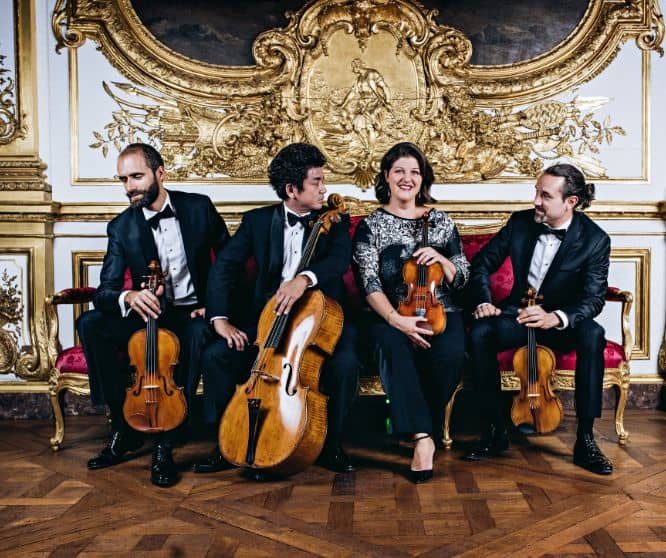
QUATUOR CAMBINI-PARIS
Fondé en 2007, le Quatuor Cambini-Paris, un des rares quatuors à cordes à jouer sur instruments d’époque, est apprécié tant pour son interprétation des œuvres reconnues de Joseph Haydn, Mozart, Beethoven ou Mendelssohn que pour sa redécouverte de compositeurs français oubliés tels Jadin, David ou Gouvy.
By choosing the name of Giuseppe Maria Cambini (1746-1825), a violinist and composer of 155 string quartets, the Quatuor Cambini-Paris bears witness to its interest in exploring the stylistic developments of the Classical and Romantic periods.
Le Quatuor Cambini-Paris se produit dans les salles et les festivals les plus renommés en France et à l’international, parmi lesquels on peut citer : la Frick Collection à New-York, la Salle Bourgie à Montréal, le Palazzetto Bru Zane à Venise, les Auditoriums du Musée du Louvre et du Musée d’Orsay à Paris, l’Arsenal de Metz, le Concertgebouw de Bruges, les festivals de Deauville, Radio France Occitanie Montpellier, Newbury ou Saintes.
At the start of the 2016-17 season, the Quatuor Cambini-Paris embarked on the ambitious project of performing all 68 string quartets of Joseph Haydn at the Théâtre de Caen over a period of eight years.
Les enregistrements discographiques du Quatuor Cambini-Paris ont été salués et récompensés par la critique, notamment l’intégrale des quatuors de Charles Gounod (Aparté), les six quatuors de Mozart dédiés à Joseph Haydn (Ambroisie-Naïve), Théodore Gouvy, livre-disque (Palazzetto Bru Zane), Félicien David (Ambroisie-Naïve), Hyacinthe Jadin (Timpani), 200 ans de musique à Versailles (MBF) et les Concertos pour piano et quintette à cordes de Chopin (Aparté).
The quartet’s chamber music partners include such eminent artists as Nicolas Baldeyrou, Kristian Bezuidenhout, Christophe Coin, Jean-François Heisser, David Lively, Judith van Wanroij, or Alain Planès.
